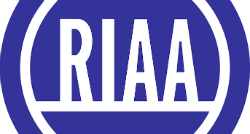
While music piracy has reduced in recent years due to the popularity of platforms such as Spotify, the major labels remain highly concerned over so-called steam-ripping services.
These sites allow users to enter a YouTube URL, for example, and then download audio from the corresponding video, mostly in MP3 format. This means that users can download music and store it on their own machines, negating the need to revisit YouTube for the same content. This, the major labels say, deprives content creators of streaming revenue.
Tackling this issue has become one of the industry’s highest anti-piracy priorities. Previously, YouTube-MP3 – the largest ripping site at the time – was shut down following legal action by the major labels. Since then, lawsuits have been filed against other platforms but the battle is far from over and recently a new strategy appears to have been deployed.
A pair of DMCA notices appeared on the Lumen Database late October, having been filed there by Google. The sender of both notices is listed as the RIAA, acting on behalf of its members including Universal Music Group, Sony Music Entertainment, and Warner Music Group.
They are worded slightly differently but each target the homepages of five major YouTube-ripping sites – 2conv.com, flvto.biz, y2mate.com, yout.com, and youtubeconverter.io. Both contain the following key claim:
“To our knowledge, the URLs provide access to a service (and/or software) that circumvents YouTube’s rolling cipher, a technical protection measure, that protects our members’ works on YouTube from unauthorized copying/downloading,” the notices read.
Unlike regular DMCA takedown notices filed with Google, these notices do not appear in Google’s Transparency report. However, Google has acted on them by delisting the homepages of all five platforms from its search results. Other URLs for the platforms still appear, but their homepages are all gone.
The notices are listed on the Lumen Database in the anti-circumvention section, meaning that the RIAA-labeled complaints demand action from Google under the anti-circumvention provisions of the DMCA, rather than demanding the takedown of URLs based on the claim they carry infringing music titles.
The ‘technical measures’ allegedly being circumvented (such as the “rolling cypher” referenced in the complaints) are those put in place by YouTube, which in turn protect the copyrighted content of the labels.
TorrentFreak contacted the RIAA yesterday, requesting comment and seeking additional information on the basis for the notices. Unfortunately, the industry group declined to make any further comment on any aspect of the complaints.
Nevertheless, the RIAA and its members are no strangers to the claim that by circumventing YouTube’s ‘technological measures’, so-called ‘ripping’ sites infringe their rights too. Two of the sites targeted in the recent notices – 2conv.com and flvto.biz – were sued by the labels in 2018. The original complaint contains the following text:

That circumvention (at least in respect of the labels’ works when users select them for download) may also amount to an infringement of the labels’ rights seems to be supported by comments made in the Disney vs VidAngel case.
An opinion from the Court of Appeals for the Ninth Circuit stated that “[n]o person shall circumvent a technological measure that effectively controls access to a [copyrighted] work. Circumvention means ‘to decrypt an encrypted work.. without the authority of the copyright owner’.”
Nevertheless, it was previously argued by the EFF that stream-ripping sites are not by definition illegal since on top of the usual fair use exemptions, some creators who upload their content to online platforms grant permission for people to freely download and modify their work.
“There exists a vast and growing volume of online video that is licensed for free downloading and modification, or contains audio tracks that are not subject to copyright,” the EFF stresses.
“Moreover, many audio extractions qualify as non-infringing fair uses under copyright. Providing a service that is capable of extracting audio tracks for these lawful purposes is itself lawful, even if some users infringe.”
The anti-circumvention notices detailed above are not only relatively rare but also have an additional interesting property – they are harder to dispute than regular DMCA takedown notices.
As detailed here last year, Google told the target of a similar complaint requesting URL delisting that “There is no formal counter notification process available under US law for circumvention, so we have not reinstated these URLs.”
The pair of DMCA anti-circumvention notices can be found here 1,2 (pdf)





